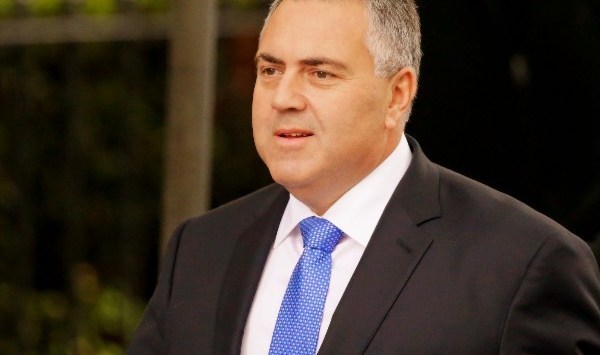

Treasurer Joe Hockey has warned the budget bottom line could deteriorate further as the price of iron ore continues to fall, with only weeks to go until the federal government delivers its second budget.
While Prime Minister Tony Abbott has told voters to expect a “dull and routine” budget next month, Hockey told Fairfax he is now contemplating an iron ore price of as low as US$35-a-tonne, which would mean writing off as much as $25 billion in additional revenue over four years.
In the government’s Mid-Year Economic and Fiscal Outlook, released in December, the forecast for the iron ore price was sitting at US$60-a-tonne. Iron ore is currently priced at US$47-a-tonne.
“There seems to be no floor,” Hockey told Fairfax. “We are contemplating as low as US$35 a tonne.”
And Hockey said flat wages growth means the losses could be further exacerbated by write-downs in income tax revenue.
“There haven’t been the wages increases that would normally give you the revenue that would help to meet growing expenditure,” the Treasurer said.
Hockey has not indicated the size of the budget deficit or when the budget may return to surplus, but he has ruled out extending last year’s temporary “deficit levy” on high income earners.
The 2% levy on taxpayers who earn over $180,000 a year will be in place for another two years but Hockey told Fairfax the government “said it was time limited and it is time limited”.
“When you lock in a temporary levy on incomes for a longer period of time, that’s when you start to get changes, behavioural changes, and frankly, we are facing massive and growing competition in income tax from neighbours and you will see behavioural changes at a certain point so we are sticking with that,” he said.
“If something is temporary and it becomes permanent then, frankly, no one ever believes it will be removed.”
It also appears the capital gains tax regime may be off-limits in this year’s budget, with Hockey indicating he is reluctant to alter the system, which he believes encourages investors to back startups.
While Hockey conceded “there may be an argument” about the capital gains regime creating distortions in the Australian economy, as discussed in the government’s recent tax discussion paper, he told Fairfax the system “may be the reason why people are prepared to invest in startups and have a go with startups rather than simply looking for yield”.
Hockey said he recently met with several startups that are “doing fantastically well” and what “struck” him from that meeting was money is being found in the economy to invest in new businesses.
“There is stable, predictable capital, patient capital that is starting to come into Australian startups,” Hockey said.
“I find that encouraging and if you can have some stability around the tax regime for capital regime, then that’s attractive for those of investments, and that’s exactly what we need – we need innovation, we need people to take a risk.”
Peter Strong, executive director of the Council of Small Business of Australia, told SmartCompany while he welcomes the government’s focus on small businesses – also reflected in the budget’s proposed small business tax cut – he says it is “not just startups” that need better access to capital.
“Small businesses that feel they want to grow also need access to finance,” Strong says.
“We know around 300,000 small businesses want to grow but they are struggling to get the finance.”
Strong says it is inevitable the budget position will continue to deteriorate if the price of iron ore continues its downward trend, which he says is “one of the problems of putting all your eggs in one basket”, referring to the focus of recent government’s on Australia’s mining sector.
“It reinforces, in my opinion, our belief [Hockey] needs to go out and do local economic development across Australia,” Strong says.
Strong believes government funding should be re-directed to a “microeconomic focus” based on employers in local communities, which could conduct their own training and economic feasibility studies.
“The lesson here is don’t concentrate on just one or two industries,” he says.


COMMENTS
SmartCompany is committed to hosting lively discussions. Help us keep the conversation useful, interesting and welcoming. We aim to publish comments quickly in the interest of promoting robust conversation, but we’re a small team and we deploy filters to protect against legal risk. Occasionally your comment may be held up while it is being reviewed, but we’re working as fast as we can to keep the conversation rolling.
The SmartCompany comment section is members-only content. Please subscribe to leave a comment.
The SmartCompany comment section is members-only content. Please login to leave a comment.